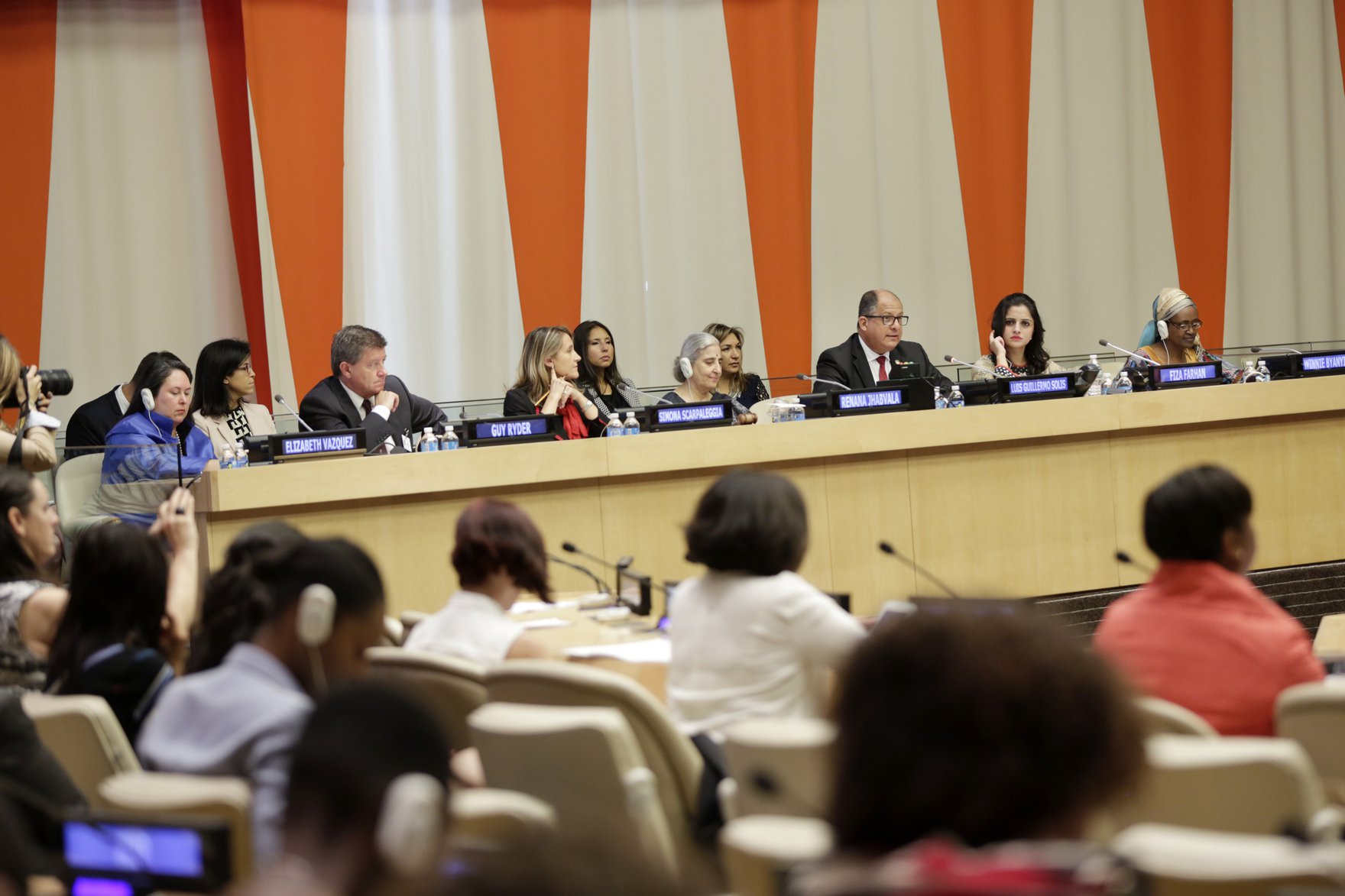International trade is a key engine of economic growth and development: it creates business and job opportunities, and facilitates innovation and the transfer of knowledge and technology. Trade creates wealth and has the potential to reduce income gaps and, quite certainly, the gender gap.
Today, there are approximately 187 million women-owned businesses worldwide, but women throughout the world still face structural problems in participating in business and in international trade.
According to WEConnect International, if “women and men participated equally in the economy, the global GDP could grow by US$28 trillion by 2025, the size of the US and Chinese economy combined.” Likewise, the World Economic Forum finds that “improving gender parity may result in significant economic dividends.”
International organizations, governments and corporations have come to realize that integrating women into the global marketplace is a powerful equalizer.
Numerous international initiatives — the Clinton Global Initiative, Global Banking Alliance for Women, WEConnect International, Vital Voices Global Partnership and ProMujer, to name a few — have developed specific programs that put businesswomen at the forefront and help them thrive. By partnering with local organizations that have deep roots in their communities and by bringing global best practices to the table, these international organizations are working at the grassroots level to help businesswomen get more access to local, national and global markets.
While women make unique contributions in terms of vision, competitiveness, productivity, profitability and innovations to the world of business, they still find it difficult to participate in local and global markets. This is because they are at a disadvantage in a number of areas that need to be tackled in a well-structured and gender-sensitive way. These areas include business skills, information, contacts, support networks, mentorships and access to financing and support systems that encourage women to succeed.
To address these needs, best practices have been developed and are beginning to show a deep impact:
- It is evident that women need to improve their business skills to develop sustainable firms. To address this need, various organizations have focused on offering women access to training programs and sessions that help improve their understanding of how best to operate their businesses. This kind of training has been most effective when it considers women’s needs — for example, offering the flexibility that allows women to attend sessions while also being able to fulfill work and family responsibilities.
- Women encounter numerous barriers to accessing the right information at the right time. Since information is not always readily available to them, programs — such as those implemented by WEConnect International — directly address this challenge. Through digital means, in-person training sessions and one-to-one contacts, women can obtain the information they need to increase their access to local and global supply chains. Experience shows that when women know what their potential consumer needs, they respond swiftly and in very innovative ways.
- Women need support networks that allow them to be part of a business community that offers opportunities to learn about other women’s experiences. Local, national and global networks can be extremely powerful in helping women do business at home and abroad, and business networks for businesswomen are essential for encouraging women to identify, create and develop business opportunities.
- Access to contacts is also key to doing business. While women’s networks are a valuable resource, they aren’t always close to the “who’s who” of business, which is often integral to trade and contract development. Connecting women to market opportunities provides businesswomen with contacts that will open the door for them to make their business case.
- Financing can determine whether a business gets a boost or goes bust, and this is certainly the case for women entrepreneurs. The Global Findex database underscores that women lag behind men when it comes to financial access. The first step for women to gain access to loans is to receive financial education. Organizations such as ProMujer in Latin America and the Global Banking Alliance for Women directly tackle this bottleneck by training women in financial education, but also by informing the financial sector about the win-win proposition of offering women financial services and access to capital.
- Mentoring can be an extremely powerful instrument for women to develop and grow their businesses. Vital Voices Global Partnership has developed mentoring programs in which an established professional in the business world mentors a businesswoman for a period of time to help her address specific challenges in the development of her business. These programs have proven to be extremely effective in terms of growth and sustainability of the business, as well as in creating market opportunities that have multiple spillover effects in their own communities.
Promoting gender parity could stimulate growth in international trade and, specifically, in global value chains, where more than 60 percent of trade in goods takes place. The recently signed Comprehensive and Progressive Agreement for Trans-Pacific Partnership established gender equality as a key area for “cooperation and capacity building activities…to assist in implementing this Agreement and accelerating growth.” Successfully integrating businesswomen into world markets requires more than a legal framework; it requires targeted interventions that effectively allow businesswomen to participate in the global marketplace. This may prove to be the best investment to boost international trade and, hence, the growth of the world economy.
